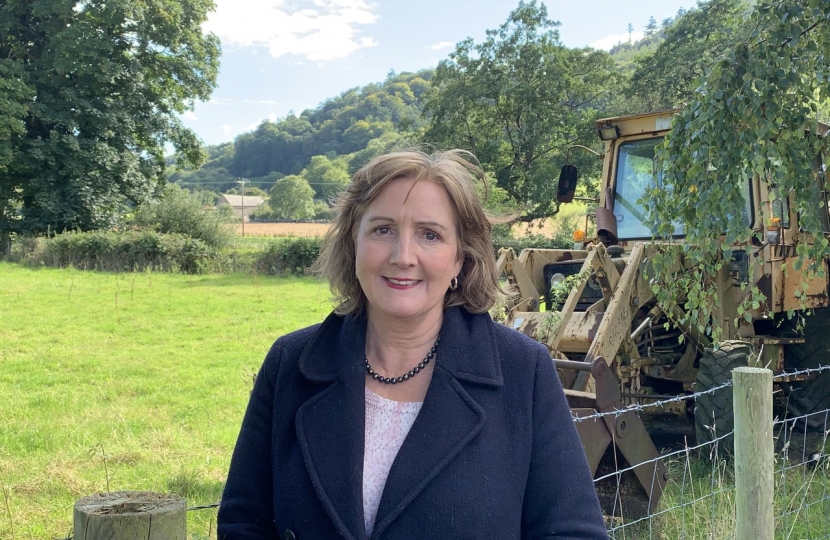
Following the news that a four-month-old foal in Pembrokeshire died last week after vegetables and sandwiches were repeatedly found in her field, Janet Finch-Saunders MS – the Welsh Conservative Shadow Minister for Rural Affairs – has reiterated her calls for the Welsh Government to examine what extra steps it can take to educate the wider public on the Countryside Code.
Animal owners throughout Wales claim the rise in walkers who do not understand the Countryside Code is becoming a problem, while the RSPCA has also emphasised that it was “essential” the public did not feed horses without permission. The intervention by Mrs Finch-Saunders also comes in the wake of a rise in sheep worrying events, where dogs have been allowed to roam through farm fields without a lead.
Making clear the need for greater awareness, Mrs Finch-Saunders said:
“The death of this foal is thought to be a consequence of the public leaving food in her field, and while visitors may have thought they were doing right by the horse, the Countryside Code is clear that you must take all litter and food home.
“In my conversations with our rural stakeholders, however, it is not just littering that has become a problem. It is a welcome sight to see many more of us connecting with our local natural heritage, but it is evident that knowledge of the rules surrounding gate closures, dog walking and path symbols has not kept apace.
“In fact, according to a 2020 survey by the National Sheep Association, a disturbing 94.85 percent of respondents said they had experienced dog worrying incidents on their farm. This is borne out by concerning tales of appalling sheep worrying events occurring across Wales, with our rural stakeholders now taking preventative measures by installing fence post guidance.
“This is why I have repeatedly urged the Welsh Government to investigate how we can better educate the public on the Countryside Code. Whether through short videos or immersive digital content, there are many different channels that Ministers can use to empower us all to learn how to responsibly behave in Wales’ rural regions.
“Importantly, under my proposals for a new National Rural Crime Taskforce for Wales, there would be a duty on the body to explore how to improve the Countryside Code and better educate the public on its content. It is vital that guidance evolves with the times, led by those affected.
“As I have made clear on several occasions in the Senedd, membership of this proposed NRCTW should include representatives of local government and agricultural businesses, ensuring that community voices are heard when taking decision that can have a profound impact on everyday activities.”



